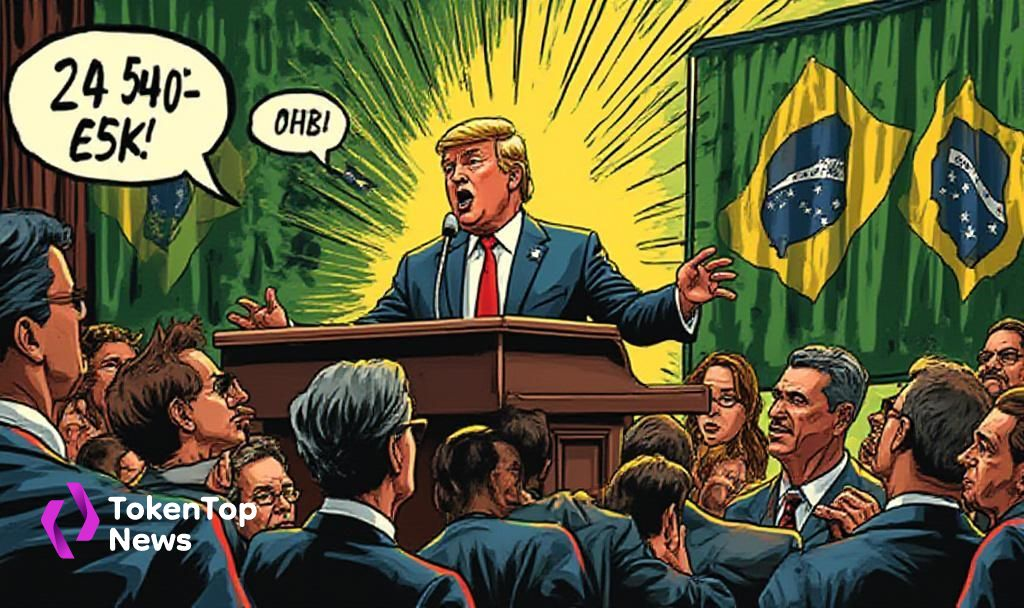Trump Announces 50% Tariff on Brazilian Imports Amid Rising Trade Tensions
- Trump imposes a 50% tariff on Brazilian imports.
- Brazil threatens increased U.S. tariffs in retaliation.
- Trade tensions heighten with potential global market impacts.

The tariff decision underscores ongoing trade tensions, highlighting national security issues and possible economic repercussions across international markets.
Impact on Trade Relations
The United States has imposed a new tariff on Brazilian imports amid escalating trade tensions. The announcement comes as part of an effort to address national security concerns, with leadership emphasizing the need to reduce U.S. vulnerabilities.
President Donald Trump recently declared a 50% tariff on imports from Brazil. Brazilian President Luiz Inácio Lula da Silva responded by indicating potential reciprocal tariffs on U.S. goods if negotiations fail. Both nations remain poised for further economic measures.
Kevin Hassett, National Economic Council Director, USA, stated:
“The bottom line is that what we’re doing absolutely, collectively across every country is we’re onshoring production in the U.S. to reduce the national emergency, that is, that we have a massive trade deficit that’s putting us at risk should we need production in the U.S. because of a national security crisis.”
The decision impacts multiple industries, particularly those reliant on international trade. Economists note increased costs for consumers and potential disruption in global supply chains. The situation may influence broader economic strategies.
Financially, industries in both countries could face challenges, leading to market uncertainty. Experts suggest monitoring these developments as they may affect various economic indicators and potentially alter future trade policies. Historical precedence suggests minimal direct impact on the cryptocurrency sector, though overall market sentiment might shift.
Observers predict possible future implications involving economic and political spheres, including potential shifts in international alliances. Analysts highlight the importance of historical data in understanding potential outcomes and advise watching for any regulatory changes that could emerge from ongoing discussions.




